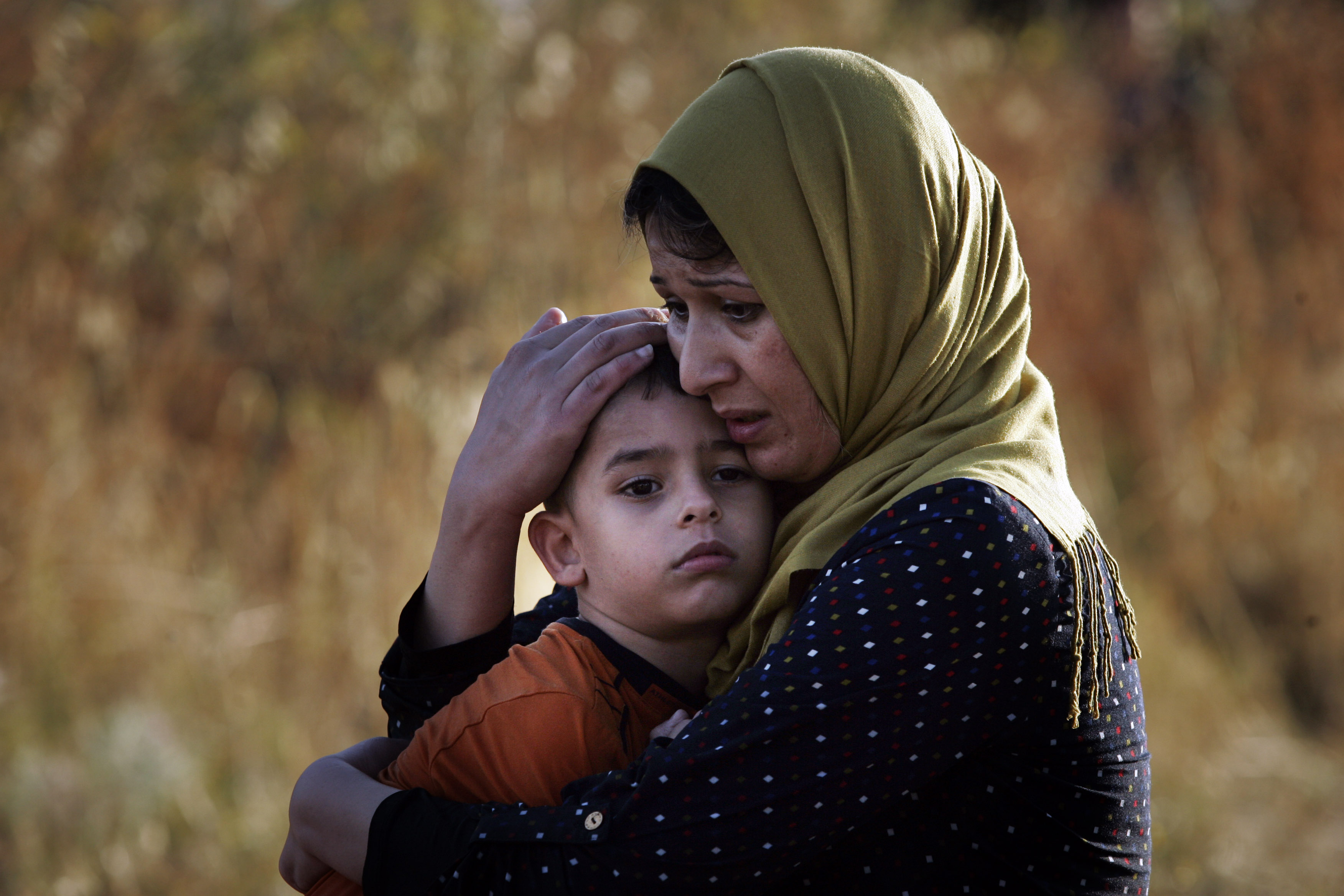
Three weeks ago, two Syrian activist journalists, Ibrahim Abd al-Qader and Fares Hamadi, both refugees who had survived harassment from the Assad regime, were killed in Urfa, Turkey, presumably by ISIS. They were added to the list of more than 220,000 Syrian dead, caught between the violence of both the Assad regime and ISIS and other armed groups.
Their murders highlight the continuing dangers Syrian refugees face. These are the people we should be supporting; these are the people who are essential to keeping hope the original vision of the Syrian uprising in 2011: a vision of a Syria built on respect for human rights. Instead, political leaders threatening to ban Syrian resettlement are threatening to shut the door on them.
Take action to end refugee-bashing here.
After dealing with years of Syrian asylum seekers and resettlement efforts for Amnesty International, I can say without hesitation that they are among the bravest people I’ve met. It’s hard to know where to start when discussing so many confusions and outright lies that are driving opposition to resettlement. I’m going to limit myself to four:
1. There are two distinct but related refugee crises involving different challenges
Of the 4 million Syrian registered as refugees and living in five neighboring countries, the UN has set a goal of resettling 400,000 Syrians. Only those registered as UN refugees in the Middle Eastern camps and identified for resettlement will be considered for US resettlement.
The UN gives priority to the most vulnerable refugees, including torture survivors, people with serious medical conditions, children and teenagers on their own and women and children at risk. Their stories are heartbreaking, but their bravery and courage will add to any community.
What this means is the tens of thousands of people who have fled to Europe seeking asylum are not part of the process. Amnesty International has raised many concerns about the dangers these asylum-seekers face and abuses they face when they arrive in Europe. However, the asylum seekers in Europe (and only half of them are Syrian) are not eligible for UN resettlement in the US and should not be part of the public discussion about resettlement. It is simply outrageous that political leaders are pointing to the chaos they see in Europe as evidence proves that vetting can’t work. Claims to this sort are, however, evidence, that the speaker hasn’t done his homework on how resettlement works.
2. The UN resettlement process is essential to reducing the number of asylum seekers
What is also outrageous is the “solution” of banning Syrian resettlement will in fact make the refugee crisis worse. It makes no sense to shut down a UN resettlement process that is orderly, careful and systematic when it guarantees driving more refugees into desperate straits, leading many more to seek to take the dangerous migration across the sea or land. More will die, and the process of handling them once they arrive [most likely in Europe] will be fraught with security holes. If we wish to reduce the numbers of asylum-seekers fleeing across the sea, we must support the more orderly UN resettlement process.
3. The UN resettlement process is essential to alleviating the burden on the host countries
In general, the UN’s goal is keeping refugees close to home so they can return when possible. Resettlement is a last resort. The fact is, the Syrians aren’t going home anytime soon. As a result, the burdens are rising on the host countries. One out of five people in Lebanon is now a Syrian refugee. The international community has failed to fulfill its commitment to supporting the UN humanitarian effort; as a result some refugees are surviving on less than 50 cents a day. The UN says resettlement is the only solution to keeping the camps sustainable.
4. Vetting of Syrian refugees present some special challenges, but the process has worked successfully already with Syrian refugees and in other countries that share the same challenges
Syrian refugees to be considered for resettlement in the U.S. will have already been vetted by the UN even before they go through the U.S. process led by the Department of Homeland Security. It is a 12 step process that is careful, slow and thorough. And it works. No vetting process can make guarantees, but the population identified by the UN and vetted by both organizations has worked successfully in alleviating crises in dozens of other countries, including Iraq, the Democratic Republic of Congo, Somalia and the Central African Republic.
Of course Amnesty International may believe that the 1,800 Syrians who have already been resettled in the US since 2011 is woefully inadequate, but the fact that we have resettled them without incident is evidence that we can do this. Clearly it’s not a matter of whether vetting of Syrians is possible; we already are doing it.
